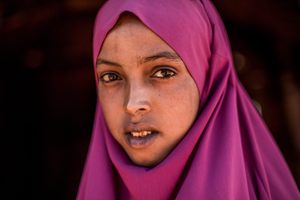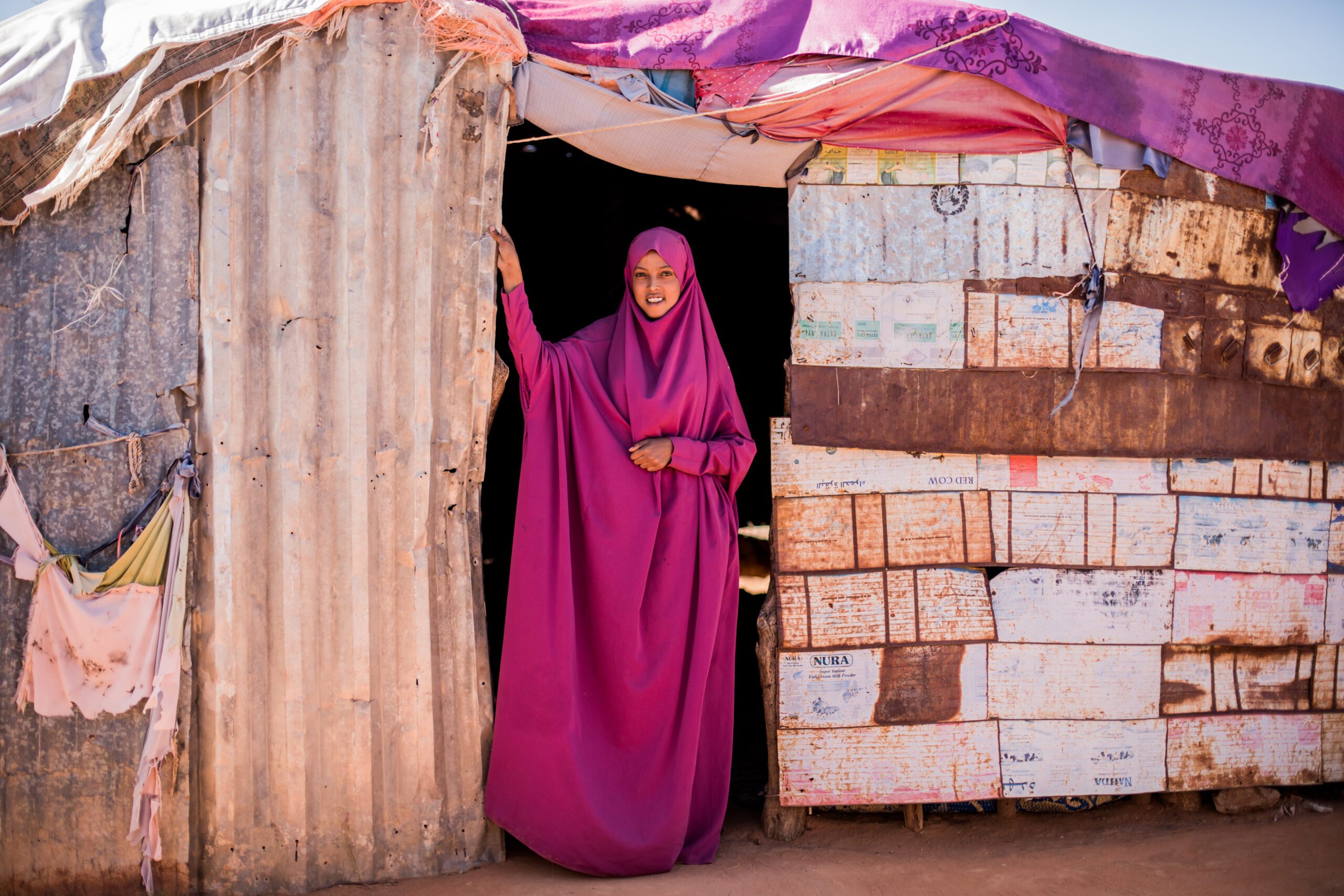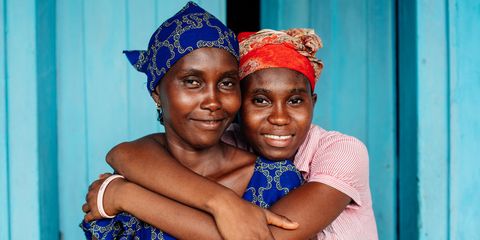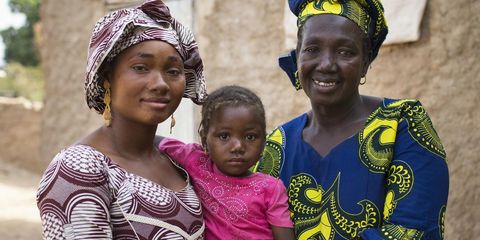Barwaaqe: I will create awareness so FGM can be stopped for good
Barwaaqe is adamant that if she ever has daughters, she will never force them to undergo FGM.

“I want to reach my life goals and succeed with my education so I can support my parents. I want to be independent. When I finish school, I want to work in the health sector, like a doctor or a midwife. This is because I want to learn more about my health and help girls and women who face a lot of health problems.”
19-year-old Barwaaqe lives with her parents and nine siblings. She is one of the lucky few who are able to go to school. Although enduring a three hour journey to get there and back travelling by tuk-tuk, she is hopeful that she will be able to finish secondary school.
Girls are dropping out of school, placing them at greater risk of FGM
With the drought intensifying in Somalia, the protection of women and girls is at a higher risk now than ever. More girls are dropping out of school putting them at greater risk of FGM which often opens the door to early marriages.
”Women in Somalia face many health challenges, including FGM which the majority of girls have undergone and has a negative impact on girls. Repeating droughts are causing illness and malnutrition because people cannot get nutritious food,” says Barwaaqe.
I’m calling for mothers to not do it to their daughters.
Barwaaqe, 19, somalia.
An FGM survivor herself, Barwaaqe tells us that, like many other girls, she was left traumatised by her experience. “I will never forget that moment and it always comes into your mind. It also caused the irregular periods that I always get. It was terrible and I can’t forget that day.”
“What I remember is a lot of fear. I was running and crying I’ll never forget it. I was nine years old. I had no idea what FGM was. My mother was with me and was also terrified and full of fear. Today and whenever I recall that day, I feel they were doing harm to me.”

She will never force her daughters to undergo FGM
Barwaaqe is adamant that if she ever has daughters, she will never force them to undergo FGM. “I have undergone it and I know its consequences. I’m fully aware of it so I will not do it. Both me and my sister have undergone FGM. When they were doing it to us, my mother did not understand the challenges that girls face after FGM, however now she is aware of it, and she did not do it to our younger sisters. I would like to create more awareness so that FGM can be stopped for good.”
In Somalia, 98% of girls and women, aged 15-49, have been subjected to female genital mutilation, or FGM. Despite the practice having devastating health implications for women and girls – including pain, bleeding, permanent disability and even death.
Plan International is working alongside the Network Against FGM in Somaliland (NAFIS) to increase community understanding of FGM and its harmful consequences. Our training workshops focus on the protection risks that children face, especially girls, including traditional practices such as FGM, early marriage and teenage pregnancies.


